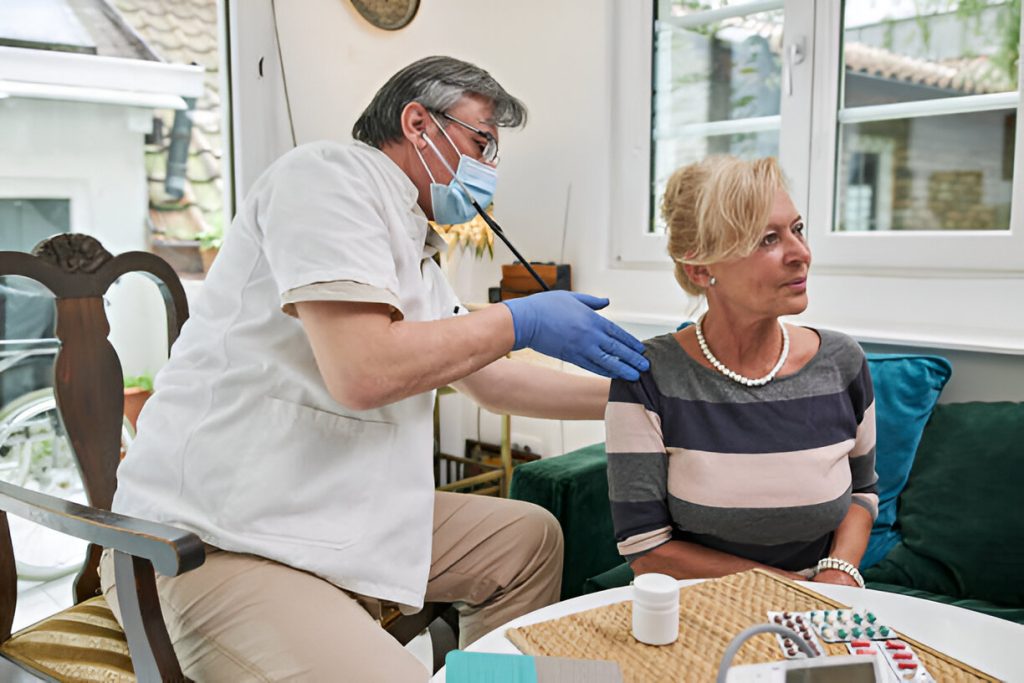Routine checkups are essential for maintaining good health. They help catch any issues early on and ensure that your body is functioning well. During these checkups, doctors look for specific physical signs to assess your health. In this article, we’ll explore what these signs are and why they are important.
Introduction to Routine Checkups
A routine checkup is a regular visit to the doctor. It’s also known as a physical examination. These checkups are important because they help monitor your overall health. They can detect problems early, sometimes before you even notice any symptoms. This way, you can get the treatment you need sooner and stay healthier longer.
Routine checkups are like a maintenance service for your body. Just as you would take your car to a mechanic for regular maintenance, you should see your doctor for regular checkups. This proactive approach to health care can prevent serious health issues down the line. It’s a way to ensure that everything is running smoothly and to make any necessary adjustments before problems become serious.
How Far Back Does a Urine Drug Screen Test?
Checking Vital Signs
One of the first things a doctor will do during a routine checkup is to check your vital signs. Vital signs include your heart rate, blood pressure, temperature, and breathing rate. These are basic measures of how well your body is working.
- Heart Rate: This is the number of times your heart beats per minute. A normal heart rate for adults is between 60 and 100 beats per minute. If your heart rate is too fast or too slow, it could be a sign of a problem. Monitoring your heart rate can help detect conditions such as arrhythmias, which are irregular heartbeats. A consistent heart rate is crucial for your overall health, as it ensures that your body is receiving the oxygen-rich blood it needs.
- Blood Pressure: This measures the force of your blood against the walls of your arteries. Normal blood pressure is around 120/80 mmHg. High or low blood pressure can indicate various health issues. High blood pressure, or hypertension, can lead to serious conditions like heart disease and stroke. Low blood pressure, or hypotension, can cause dizziness and fainting. Keeping your blood pressure within a healthy range is vital for maintaining heart health.
- Temperature: A normal body temperature is about 37°C (98.6°F). A higher or lower temperature can signal an infection or other health condition. Fever is a common sign of infection, while a lower-than-normal temperature can indicate other issues. Monitoring your temperature can help catch infections early, allowing for prompt treatment.
- Breathing Rate: This is the number of breaths you take per minute. A normal rate is about 12 to 20 breaths per minute. Breathing too fast or too slow can be a sign of respiratory issues. Your breathing rate can be affected by various factors, including anxiety, lung conditions, and overall physical fitness. Monitoring this vital sign helps ensure that your respiratory system is functioning properly.
How Does Urine Drug Screening Work?
Examining the Head and Neck
During a checkup, the doctor will examine your head and neck. They will look for any abnormalities or signs of illness.
- Eyes: The doctor will check your eyes to ensure they are healthy. They will look at your pupils, check for any redness or swelling, and ensure you can see clearly. They might also check for signs of conditions like cataracts or glaucoma, which can affect your vision over time.
- Ears: The doctor will look inside your ears to check for any infections or blockages. They will also test your hearing. Ear infections can cause pain and hearing loss, while blockages can lead to discomfort and difficulty hearing. Regular ear checks help maintain good ear health and catch any issues early.
- Nose: They will examine your nose for any signs of infection or allergies. They might check if you have any difficulty breathing through your nose. Conditions like sinus infections or allergies can cause congestion and discomfort. Checking your nose helps ensure that your respiratory system is clear and functioning properly.
- Throat: The doctor will look at your throat and tonsils. They will check for any redness, swelling, or other signs of infection. Throat infections can cause pain and difficulty swallowing. Regular throat checks help catch infections early and ensure prompt treatment.
- Neck: They will feel your neck to check for swollen glands or lumps. These can be signs of infection or other health issues. Swollen glands often indicate that your body is fighting an infection. Checking your neck helps catch infections early and monitor your overall lymphatic health.
Do Urine Drug Screens Test for Alcohol?
Listening to the Heart and Lungs
The doctor will use a stethoscope to listen to your heart and lungs. This helps them detect any unusual sounds or issues.
- Heart: They will listen for any irregular heartbeats, murmurs, or other abnormal sounds. These can indicate heart problems. Heart murmurs can be harmless or a sign of more serious heart conditions. Regular heart checks help ensure that your heart is functioning properly and can catch issues early.
- Lungs: The doctor will listen to your breathing. They will check for any wheezing, crackling, or other unusual sounds. These can be signs of lung conditions like asthma or infections. Listening to your lungs helps catch respiratory issues early and ensure that your lungs are functioning well.
Why Would a Doctor Order a Urine Drug Screen?
Checking the Abdomen
The doctor will examine your abdomen to ensure everything is normal.
- Touch: They will gently press on your abdomen to check for any pain or swelling. This can help detect issues with your organs, like your liver or intestines. Abdominal pain can indicate various conditions, including infections, digestive issues, or organ problems. Regular abdominal checks help catch issues early and ensure prompt treatment.
- Sounds: They may also listen to the sounds in your abdomen. Normal digestive sounds are a sign that your digestive system is working well. Abnormal sounds can indicate digestive issues or blockages. Listening to your abdomen helps ensure that your digestive system is functioning properly.
Examining the Skin
Your skin can reveal a lot about your overall health. The doctor will check your skin for any changes or abnormalities.
- Rashes or Bumps: They will look for any rashes, bumps, or other changes in your skin. These can be signs of allergies, infections, or other health conditions. Skin conditions can be indicators of underlying health issues. Regular skin checks help catch these conditions early and ensure prompt treatment.
- Colour: They will check the colour of your skin. Pale skin can indicate anemia, while yellow skin can be a sign of liver problems. Changes in skin colour can be a sign of various health conditions. Regular skin checks help monitor your overall health and catch issues early.
Does Synthetic Urine Work for Drug Screening?
Assessing Movement and Reflexes
The doctor will also check your movement and reflexes. This helps assess the health of your nervous system.
- Reflexes: They will test your reflexes by tapping certain areas of your body with a small hammer. Normal reflexes indicate a healthy nervous system. Abnormal reflexes can indicate nerve or spinal cord issues. Regular reflex checks help monitor your nervous system health.
- Movement: They may ask you to perform certain movements or exercises. This helps check your muscle strength and coordination. Issues with movement can indicate problems with your muscles, nerves, or brain. Regular movement checks help ensure that your nervous and muscular systems are functioning properly.
Conclusion
Routine checkups are vital for keeping track of your health. By checking vital signs, examining different parts of your body, and assessing your movement and reflexes, doctors can detect potential health issues early. Remember, it’s always better to catch problems early than to deal with them later. So, make sure to schedule your routine checkups and stay on top of your health!
Routine checkups are not just about detecting illnesses. They are also an opportunity for you to discuss any concerns or symptoms you might have with your doctor. This open communication can help you understand your body better and take proactive steps towards maintaining your health. It’s a partnership between you and your doctor, aimed at keeping you healthy and well.
Visit: ULTRA CARE MEDICAL CENTER
Schedule Your Checkup at Deptford Medical Center
Your health is your most valuable asset. Regular checkups are a key part of maintaining it. At Deptford Medical Center, we are committed to providing comprehensive and compassionate care. Our experienced medical team is here to ensure that you stay healthy and catch any potential issues early. Don’t wait until you feel unwell. Schedule your routine checkup today and take a proactive step towards a healthier future. Contact Deptford Medical Center to book your appointment and keep your health on track. Your well-being is our priority.
Contact us today!
Frequently Asked Questions
How often should I get a routine checkup?
Adults should have a routine checkup at least once a year. However, your doctor may recommend more frequent visits based on your health status and medical history.
What should I bring to a routine checkup?
Bring a list of your current medications, any medical records, and a list of questions or concerns you have. This helps ensure a thorough and productive checkup.
Do routine checkups include blood tests?
Routine checkups may include blood tests to monitor cholesterol levels, blood sugar, and other important health indicators. Your doctor will determine if you need any specific tests.
Can I discuss mental health during a routine checkup?
Yes, you can and should discuss mental health concerns during a routine checkup. Your doctor can provide support, resources, and referrals to mental health specialists if needed.
Are routine checkups covered by insurance?
Most health insurance plans cover routine checkups as part of preventive care. Check with your insurance provider to understand your coverage and any potential out-of-pocket costs.
What should I wear to a routine checkup?
Wear comfortable, loose-fitting clothing to your checkup. This makes it easier for the doctor to perform physical exams and for you to change into a gown if needed.

